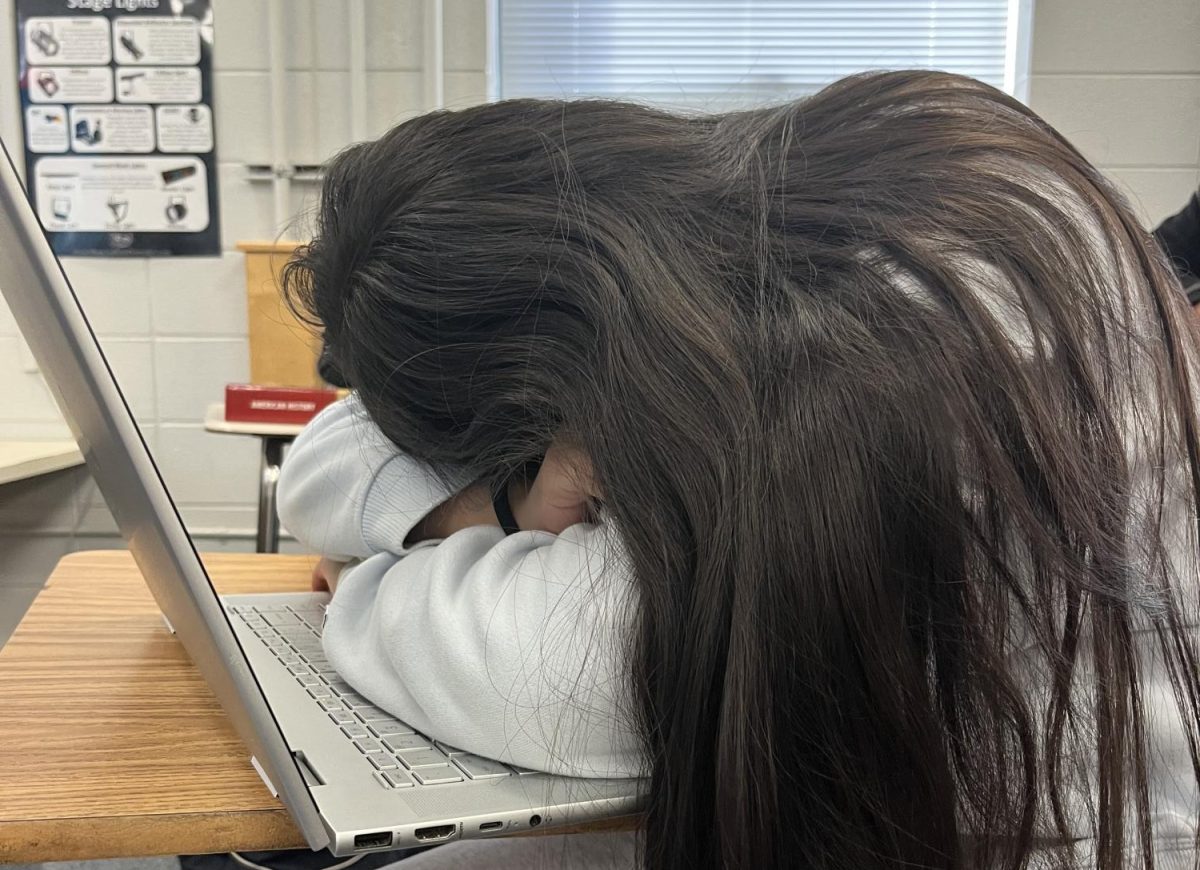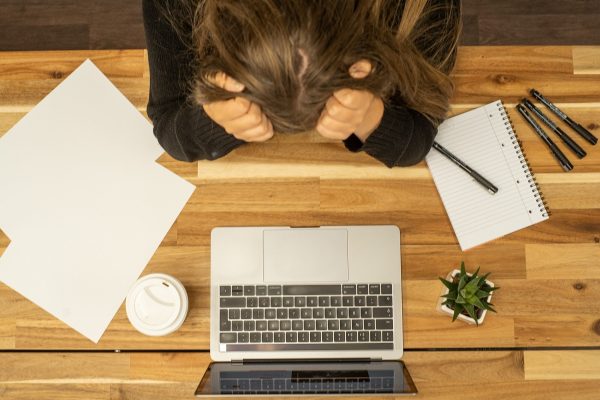
Sadie Collins / Prowler Press
“When I was younger, I loved school. I’m not sure when that love stopped.”
“Even when I get a good amount of sleep, I still feel exhausted and drained.”
“Everything feels like a lot and I don’t think I can handle it, I just feel so overwhelmed.”
If any of these sentences sound like something you’ve said before, you might be experiencing academic burnout. Academic burnout is defined as exhaustion due to poorly handled stress regarding educational responsibilities. This exhaustion is caused by excessive study or extracurricular demands, pressure, poor relationships with peers, and other stressors.
It can cause students to feel continuously exhausted and stressed out. A love of school can be replaced by dread of it and an unwillingness to get up in the morning.
In a recent poll, 90% of respondents at Franklin High School feel burnt out or have in the past.
A majority of students polled felt stress due to the school day and homework, but others answered work, sports, and home.
Elizabeth Cruz-Rios, senior, is one burnout story among many. “I define myself [by] my grades,” she describes.“I get really unmotivated when I see that I don’t have a good grade to begin with.” Cruz-Rios explains how this lack of motivation leads to sadness or an unwillingness to go to school.
“Grades don’t define you,” Cruz-Rios states. “I overcame [my burnout] by making myself think, it’s just a grade. It doesn’t define who I am.” She advises students feeling similarly to talk to parents or other trusted people, and to be more time efficient.
Other students deal with their burnout by sleeping, balancing their time, listening to music, cleaning, making art, praying, playing video games, watching TV, going outside, working out, and reminding themselves to take things one day at a time.

Teachers see burnout affect their students firsthand. A student who may have come into the year excited and putting in a lot of effort may slip into apathy or overwhelm by the middle of the semester.
Ms. Gibson, a teacher in the FHS History department, says, “I’ve done this for 20 years, and I would say it’s worse now than it was 20 years ago.”
She attributes this growing trend towards burnout to today’s technology. Ms. Gibson combats burnout in her students by giving them extra credit. In her own life, she protects herself from burnout by focusing on the positive and loving what she does. Looking forward to the end result is what keeps her going.
Counselors also spot academic burnout often, especially in seniors. Some seniors are excited about their future plans, but others who don’t have it figured out quite yet can become unmotivated.
Becka Dulaney, Post-Secondary Advisor, recommends, “Talk to people, because I will assure you, you’re not the only one feeling that burnout.”
You may feel as though there’s no point in academics anymore because something doesn’t work out, but Dulaney explains that there are always other options, such as discussing new plans with your counselors.
Franklin High School’s vice principal Daniel Gibson understands the academic burnout of students from dealing with burnout in his own life. Before working at the school, he worked in athletics at Western Carolina University.
During this time, he says, “There were times when everything was really fun, and then there were times when it was an absolute grind… You don’t want to get out of bed… In those times, it’s kind of hard to see the light at the end of the tunnel.”
To keep going, Mr. Gibson puts his all into everything he does. “Just keep grinding, and eventually you’re going to get to where you need to be.”
“We have to give ourselves permission to say no,” Mr. Gibson advises. Though he knows firsthand that this is a difficult thing to do, he says, “You have to prioritize taking care of yourself… It’s hard for a tow truck to tow a car to the garage if it doesn’t have any gas… You can’t serve others if you don’t have anything to give.”
To break free from burnout, Mr. Gibson enjoys playing golf to recharge his batteries and work through his thoughts. “Isolate and be with your thoughts, process your emotions, feel those things so that you have an awareness of where you are,” he explains. “Sometimes you’re going to have to make some hard decisions and it’s easier to make those decisions when you’ve cleared your head.”
Mr. Gibson also uses a planner to keep himself organized and visualize his time. Planners and to-do lists are great tools to prevent becoming overwhelmed.
You might feel like you have to do it all, but then get overburdened from overcommitting. If you feel overwhelmed or as though there’s no point to even coming to school, don’t wait to talk to someone.
“The simple act of communicating could save a lot of people the frustration and the headaches that come with burnout,” Mr. Gibson sagely advises.
Becoming overstressed can lead to physical health issues, as it did for me. I said yes to too many commitments, I was in too many clubs, all while taking difficult classes. This led to stomach pain and nausea, on top of the mental stress.
That doesn’t have to be your story. Your worth does not come from having the best grades, best sports record, most clubs, most friends, or anything of the sort.
It is never too late to break free from burnout.